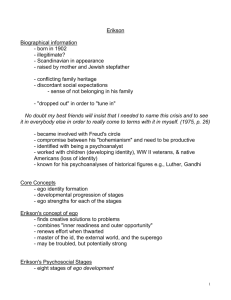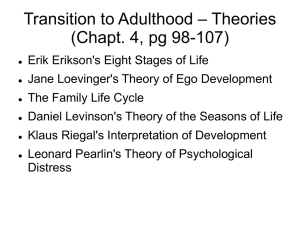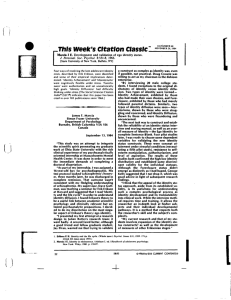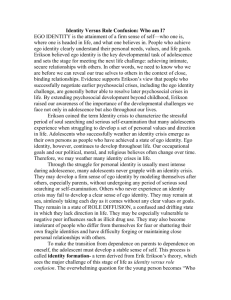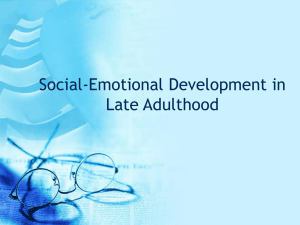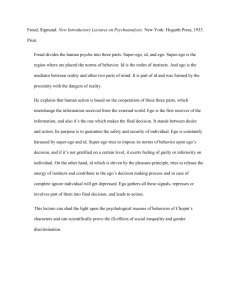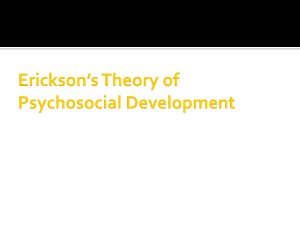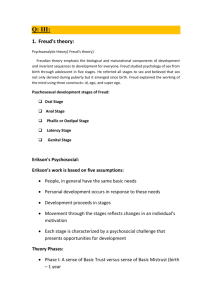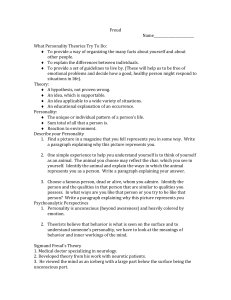Erikson – Post Freudian Theory
advertisement
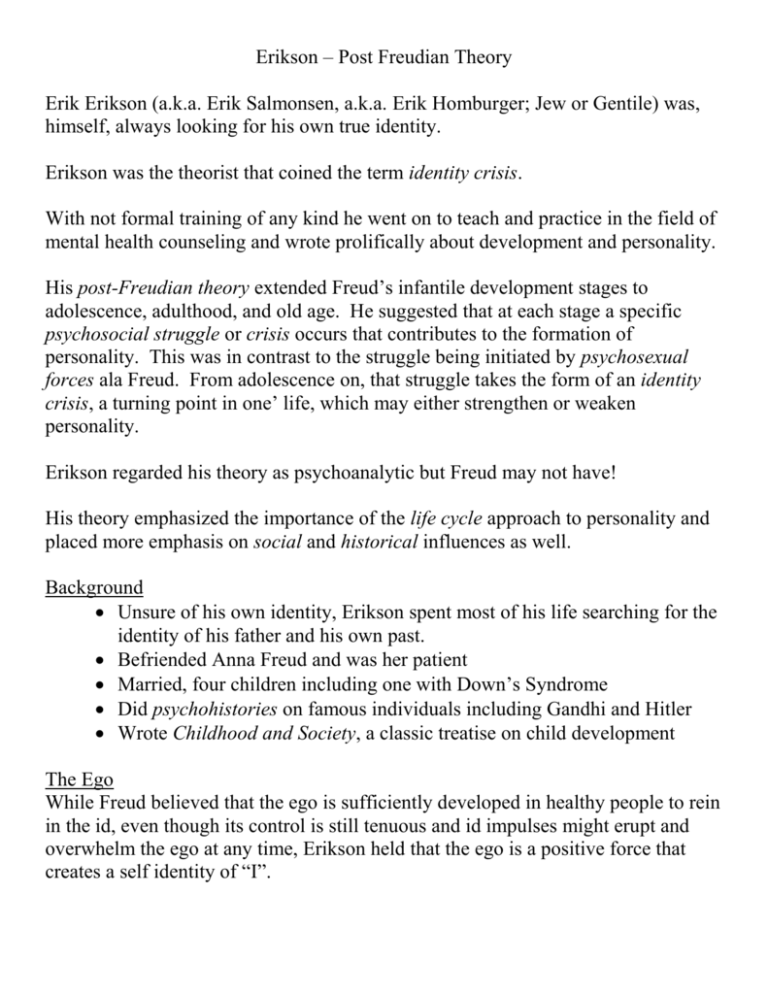
Erikson – Post Freudian Theory Erik Erikson (a.k.a. Erik Salmonsen, a.k.a. Erik Homburger; Jew or Gentile) was, himself, always looking for his own true identity. Erikson was the theorist that coined the term identity crisis. With not formal training of any kind he went on to teach and practice in the field of mental health counseling and wrote prolifically about development and personality. His post-Freudian theory extended Freud’s infantile development stages to adolescence, adulthood, and old age. He suggested that at each stage a specific psychosocial struggle or crisis occurs that contributes to the formation of personality. This was in contrast to the struggle being initiated by psychosexual forces ala Freud. From adolescence on, that struggle takes the form of an identity crisis, a turning point in one’ life, which may either strengthen or weaken personality. Erikson regarded his theory as psychoanalytic but Freud may not have! His theory emphasized the importance of the life cycle approach to personality and placed more emphasis on social and historical influences as well. Background Unsure of his own identity, Erikson spent most of his life searching for the identity of his father and his own past. Befriended Anna Freud and was her patient Married, four children including one with Down’s Syndrome Did psychohistories on famous individuals including Gandhi and Hitler Wrote Childhood and Society, a classic treatise on child development The Ego While Freud believed that the ego is sufficiently developed in healthy people to rein in the id, even though its control is still tenuous and id impulses might erupt and overwhelm the ego at any time, Erikson held that the ego is a positive force that creates a self identity of “I”. He defined the ego as a person’s ability to unify experiences and actions in an adaptive manner. He identified three interrelated aspects of ego body ego (experiences with our body, a way of seeing the physical self as different for other people) ego ideal (the image we have of ourselves in comparison with an established ideal; it is responsible for our being satisfied or not satisfied not only with our physical self but with our entire personal identity) ego identity (the image we have of ourselves in the variety of social roles we play) Society has a profound impact on the development of the child and the ego! Stages of Psychosocial Development Erikson believed that the ego develops throughout the various stages (8) according to the epigenetic principle. This principle implies a step-by-step growth of fetal organs, one level building on another, and at a predetermined rate in a fixed sequence. In every stage of life there is an interaction of opposites o Conflict between syntonic (harmonious) elements and dystonic (disruptive) elements The conflict between the dystonic and syntonic elements produces an ego quality or ego strength called basic strength Too little basic strength at any one stage results in a core pathology for that stage which is usually the opposite of the basic strength Erikson referred to his eight stages as psychosocial stages without losing sight of their biological underpinnings Events at earlier stages do not cause later personality development. Ego identity is shaped by a multiplicity of conflicts and events - past, present, and anticipated. During each stage, and in particular beyond adolescence, personality is characterized by an identity crisis – a turning point, a crucial period of increased vulnerability and heightened potential Methods Erikson used anthropological, historical, sociological, and clinical methods to study people The psychohistory is the “study of individual and collective life with the combined methods of analysis and history” Critique Erikson wrote artistically and found his work somewhere between science and art Generate Research – 4 Falsifiable – 3 Organize knowledge – 2 Guide to action – 2 Internal consistency – 4 Parsimony – 3 Free will=Determinism Pessimistic<Optimistic Causality>Teleological Conscious=Unconscious Social>Biological Uniqueness<Similarities

